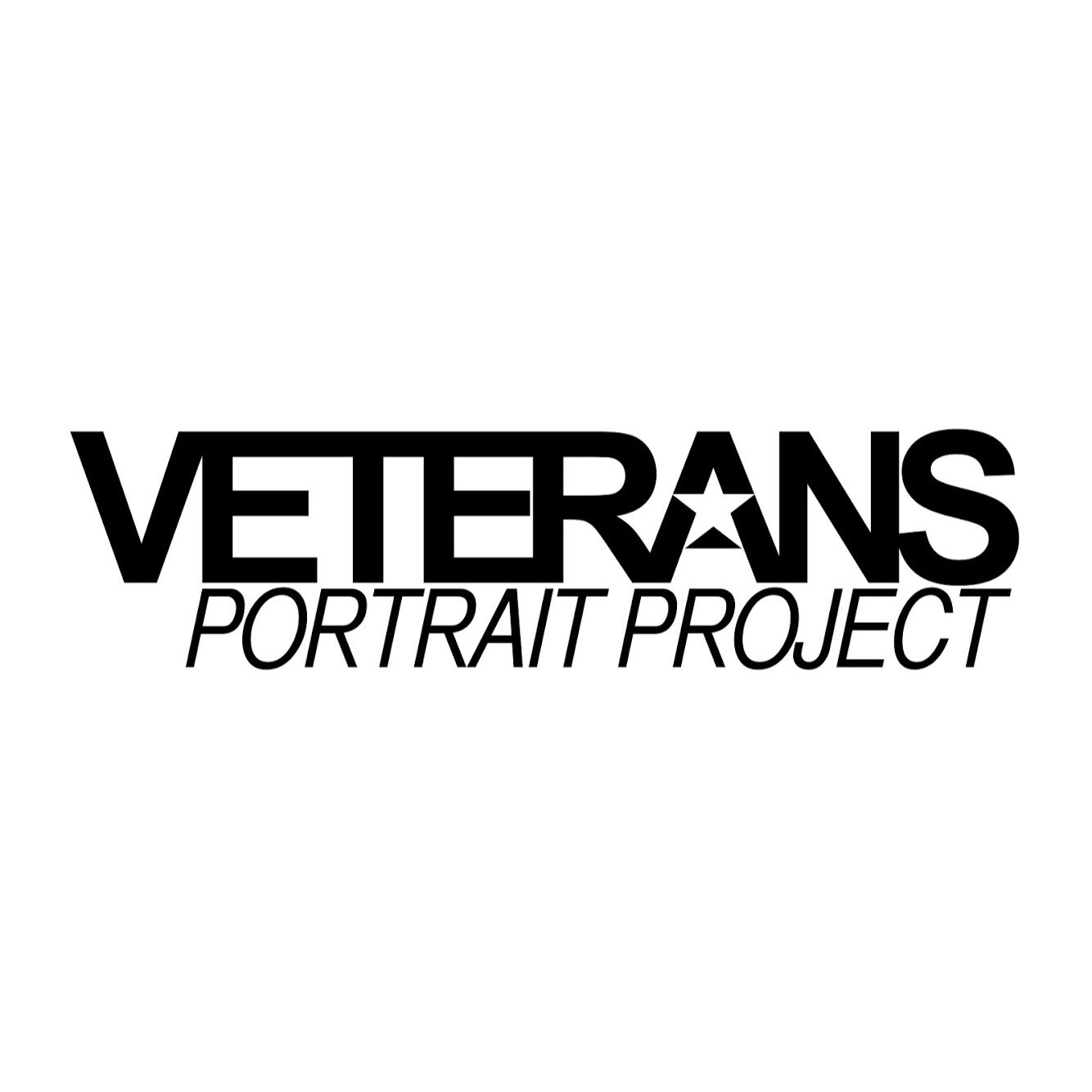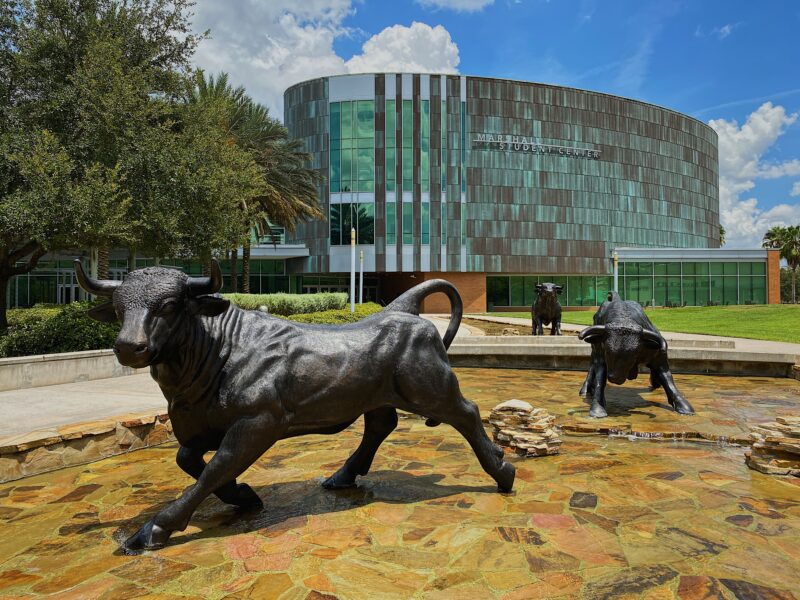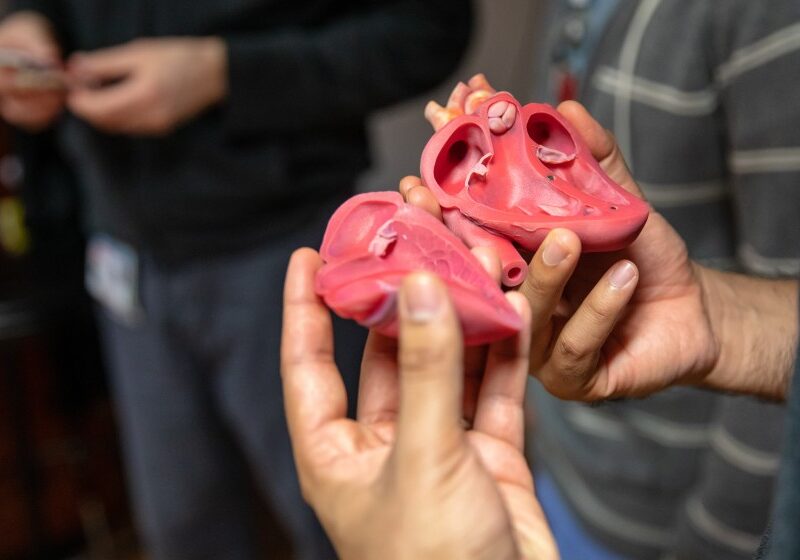Stacey Pearsall has photographed more than 7,500 veterans across 30 states since the beginning of her “Veterans Portrait Project” in 2008. To view the full project, visit: veteransportraitproject.com. Courtesy of Stacy Pearsall
By Emily Wunderlich and Delaney Brown
It was March 29, 2018, when combat photographer Stacy Pearsall and her service dog, Charlie, arrived at USF St. Petersburg with a mission: to photograph veterans tied to the campus community.
Pearsall, a retired Air Force photographer, was armed with her portable photography studio and one assistant, capturing the portraits of students, alumni, faculty and staff who served their country. The opportunity was arranged by the Places, Spaces, and Art office in collaboration with the Military and Veterans Success Center.
The outcome was a three-month exhibit at Nelson Poynter Memorial Library titled “USFSP Vets: Portraits in Black and White,” part of Pearsall’s larger “Veterans Portrait Project.” Since the project’s beginning, Pearsall has photographed more than 7,500 veterans’ portraits across 30 states. To view more of the project, visit http://www.veteransportraitproject.com/.
Pearsall calls the VPP “an emotionally cathartic, physically healing tool” that began in 2008 as she rehabilitated from combat injuries sustained in Iraq. During her service, she traveled to more than 41 countries and completed three tours of combat, earning the Bronze Star Medal and Air Force Commendation with Valor.
The library exhibit includes more than 20 portraits of campus veterans, along with their stories, written by us at the recommendation of Janet Keeler, journalism and digital communication professor, and curated by Ann Wykell, USF St. Petersburg public art consultant.
Throughout the semester, we spent countless hours interviewing veterans. We had limited knowledge about the military, so Milton White and Kathryn Benton, director and assistant director of the MVSC, coached us on interviewing techniques and told us what to expect.
We approached the assignment with little direction and an open mind. Our interviews were more than we could have ever hoped for: compelling, honest, personal and powerful.
We found ourselves transcribing every minute of our recorded interviews so we wouldn’t overlook any important details. We spent even more time untangling the interviews to tell each story accurately, as our conversations would often jump all over the place.
But who could help it? When you’re sitting in front of such fascinating people, it’s hard to run out of questions to ask.
The veterans were transparent with us, at times sharing things they hadn’t yet told their families. For some, the interviews were their first time sitting down and reflecting on their experiences.
They shared some of the most vulnerable moments in their lives, and we were honored to listen.
Often, we as a society enter conversations with preconceived ideas. When it comes to veterans, we expect them to be tough, stony, and unwilling to share, but those ideas couldn’t have been further from the truth. The veterans wanted to share. They needed to be heard.
Our biggest takeaway was what it means to be trusted with someone else’s story. We left each interview feeling personally connected and indebted to our veterans. We felt obligated to represent them in the truest way possible.
After all, these were their stories — we were merely the outlets. It was our job to get them right, and do so in a tasteful way. It was the least we could do to thank them for their courage.
After spending time in the MVSC, we encourage all students to pay a visit for themselves. You’ll immediately feel welcome. You’ll learn so much about the veterans on our campus, and as Jonathan Rowles, one of the veterans involved in the project, puts it, there is so much that veterans can learn about civilian life by interacting with students.
To view all the veterans stories and photos, visit crowsneststpete.com/category/veterans-spotlight/.



